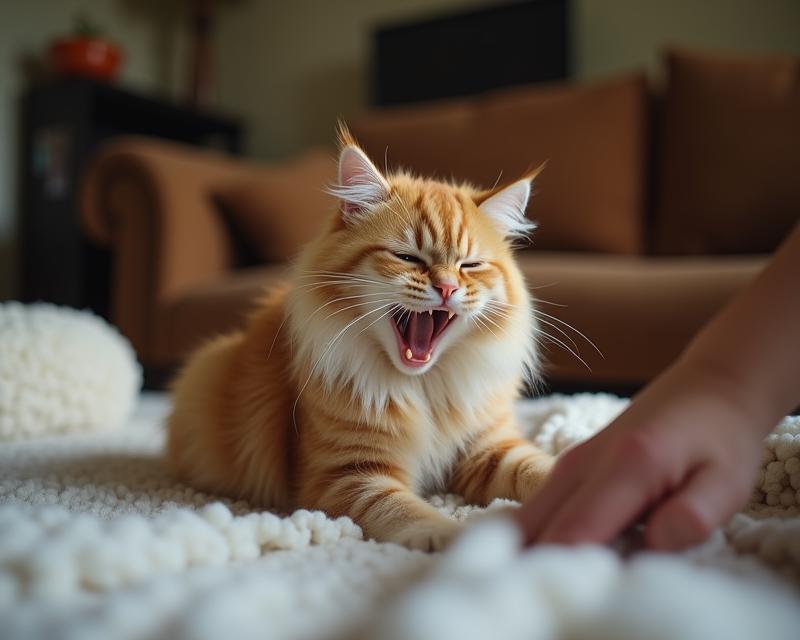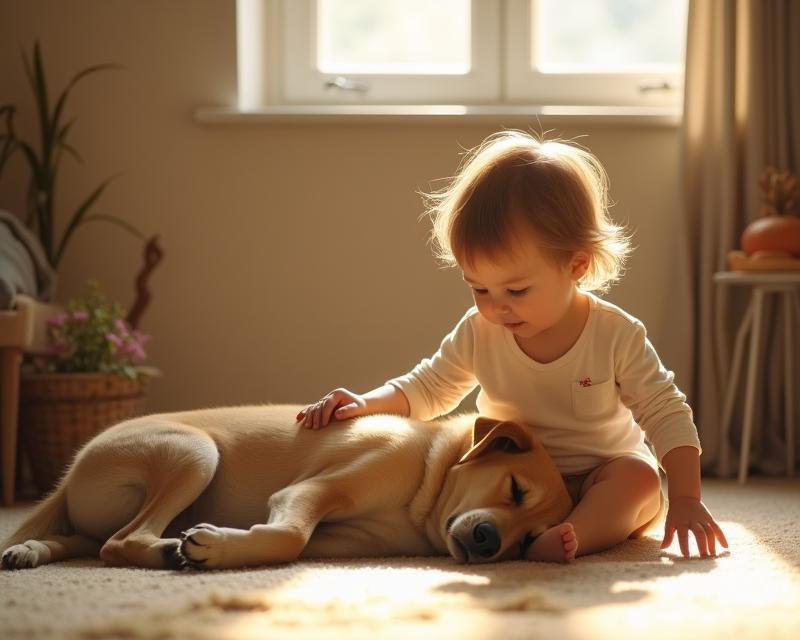My Cat Hates Visitors on the Bed! Why?
Publish in General Care el 28/06/2025 19:08
Why Does My Cat Get Grumpy on Their Bed?
It's a common frustration for cat owners: your feline friend is usually sweet and cuddly, but transforms into a grumpy guard when someone approaches their favorite spot – the bed! Understanding this behavior is key to a happier home for both you and your cat. It's rarely about *you* personally; it's usually rooted in a cat's instinctual needs and sense of security.

Territory, Territory, Territory!
Cats are naturally territorial animals. They see their bed as *their* safe haven, a place to relax, sleep, and feel secure. This isn't just about comfort; it's about establishing boundaries. When a stranger approaches, your cat perceives a potential threat to their personal space and, by extension, their territory. The bed is a valuable resource, and they're fiercely protective of it.
Fear and Anxiety: The Root of the Aggression
Aggression in this situation is often a sign of fear or anxiety. The cat might feel overwhelmed by the unfamiliar person's scent, movements, or even voice. Even if your cat usually enjoys attention, a sudden intrusion onto their bed can trigger a defensive response. This response can manifest as hissing, swatting, growling, or even biting – all attempts to deter the perceived threat.
What Can You Do?
Here are a few things you can try to help your cat feel more comfortable with visitors around their bed:
- Create Alternative Cozy Spots: Provide other comfortable beds or resting areas in the house. This gives your cat options and reduces the pressure on the favorite bed.
- Gradual Introduction: If possible, have visitors ignore the cat initially. Let the cat approach the visitor on their own terms. Don't force interaction.
- Positive Reinforcement: When visitors are nearby and the cat remains calm, offer treats and praise. This helps associate visitors with positive experiences.
- Safe Space: Ensure your cat always has a safe space they can retreat to if they feel overwhelmed, like a cat tree or a quiet room.
- Don't Punish: Never punish your cat for defensive behavior. This will only increase their anxiety and worsen the problem.
Remember, patience is key! It takes time for a cat to adjust to new situations and people. By understanding your cat's behavior and providing a supportive environment, you can help them feel more secure and comfortable in their own home.
When to Consult a Vet
If the aggressive behavior is severe or sudden, it's always a good idea to consult with your veterinarian. There could be an underlying medical condition contributing to the change in behavior.





